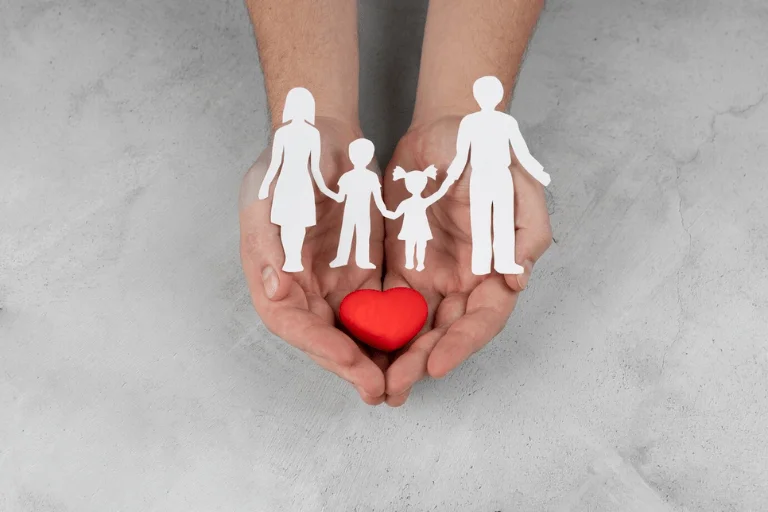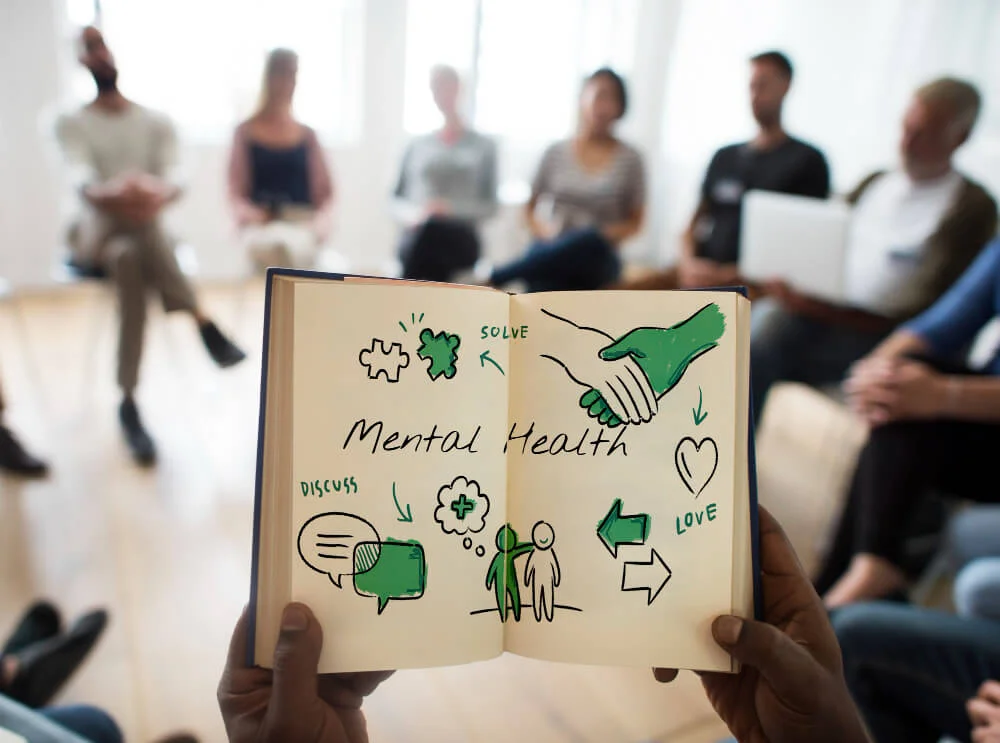
Dual Diagnosis Treatment
Research published in the Journal of the American Medical Association reveals that nearly half of those with severe mental disorders engage in substance abuse. Specifically, 37% of individuals abusing alcohol and 53% of those using drugs battle at least one significant mental illness. Among the mentally ill population, a staggering 29% are also involved in substance abuse.
Ignoring these intertwined issues only exacerbates the problem, deepening the cycle of mental distress and dependency. However, it’s critical to understand that there’s hope and that recovery is within reach. At Twilight Recovery, we offer that hope, supported by evidence-based treatments and a caring, knowledgeable staff.
Our goal is not just to treat the symptoms but to empower our clients to conquer their struggles, mend their relationships, and embark on a journey towards recovery and reclaiming their lives.

What is Dual Diagnosis?

A dual diagnosis means someone has both a mental health problem, like anxiety or depression, and a problem with substance use, like alcohol or drugs. These two issues can make each other worse, creating a tough cycle to break. It’s not just having two problems – it’s when they are connected and affect each other simultaneously.
Our mental health and addiction treatment center helps people with both issues at the same time. We know it’s essential to treat the mental health problem and the substance use problem together, not separately. This way, we can help stop the cycle so you start feeling better. We customize our care for each person, ensuring we meet your needs with the right kind of help.
Is Dual Diagnosis the Same as Co-occurring Disorders?
While often used interchangeably, the terms “dual diagnosis” and “co-occurring disorders” are not the same, though they share similarities. Dual diagnosis specifically refers to the presence of a substance use disorder alongside another psychiatric condition, emphasizing the relationship between substance abuse and mental health issues. This term traditionally focuses on diagnosing these two types of disorders occurring together.
Co-occurring mental health disorders, on the other hand, encompass a broader range of conditions that may include any combination of two or more psychiatric disorders happening simultaneously. This term is not limited to just substance use disorders and mental health conditions; it can also include the combination of various mental health disorders without the presence of substance abuse.
Whether it’s a dual diagnosis or other co-occurring disorders, our rehab treatment plans are designed to provide comprehensive care that targets each aspect of an individual’s health, ensuring a holistic approach to recovery.
Symptoms of Dual Diagnosis
Understanding the symptoms of a dual diagnosis is critical for recognizing the need to seek treatment. The manifestations can be complex, as they represent a blend of both substance abuse problems and symptoms of mental health disorders. Here’s a breakdown of common symptoms associated with each aspect of dual diagnosis:
Withdrawal from Family and Friends
Individuals might isolate themselves, avoiding interactions with loved ones and retreating from social engagements. This withdrawal often stems from a desire to hide substance use or from feelings of shame, guilt, or depression.
Difficulty Maintaining Focus
Substance use and mental health disorders can severely impact cognitive functions, making it hard for individuals to concentrate on tasks, maintain attention in conversations, or follow through with responsibilities.
Sudden Changes in Behavior
Unexpected and drastic changes in behavior, including increased irritability, aggression, or apathy, can indicate underlying issues with substance use and mental health conditions.
Engaging in Risky Behaviors
Dual diagnosis can lead to engaging in dangerous activities without considering the consequences, such as driving under the influence, using substances in hazardous situations, or engaging in unprotected sex.
Developing High Tolerance and Withdrawal Symptoms
An increased tolerance to substances, needing more to achieve the same effect, coupled with withdrawal symptoms when not using, signals a deepening dependence.
Feeling the Need to Use the Substance to Function
The belief that one cannot perform daily activities or handle stress without using substances is a hallmark of addiction intertwined with mental health issues, emphasizing the need for comprehensive treatment options.
Extreme Mood Changes
Fluctuations in mood, ranging from highs (mania) to lows (depression), can indicate a mental health disorder co-occurring with substance use.
Confusion and Problems Concentrating
Mental health issues can cause confusion and difficulty concentrating, which are exacerbated by substance abuse.
Inability to Function at Work or School
Substance use and mental health disorders can impair one’s ability to maintain their responsibilities at work or school, leading to declining performance and absenteeism.

Why Substance Abuse and Mental Health Disorders Occur Together
The co-occurrence of substance use disorders (SUDs) and mental health conditions is a complex phenomenon that often perplexes both individuals experiencing these issues and the professionals who treat them. It’s not always clear which condition emerged first, as both can significantly influence the development and progression of the other.
Researchers have identified three main reasons why these disorders frequently occur together, shedding light on the intricate relationship between mental health and using drugs or alcohol.
Shared Risk Factors
A significant aspect of this co-occurrence is the presence of common risk factors that predispose individuals to both mental health disorders and SUDs. These include genetic vulnerabilities that make a person more susceptible to both conditions. Stress, a universal trigger for numerous health issues, also plays a critical role in the onset of mental health disorders and substance misuse.
Trauma, particularly when experienced in childhood, is another significant risk factor. This is especially relevant for veterans who, due to their high exposure to traumatic events, have an increased risk of developing post-traumatic stress disorder (PTSD) and subsequent SUDs, necessitating specialized treatment for dual diagnosis.


Mental Health Issues Leading to Substance Use
Mental health disorders can pave the way for substance use and the development of SUDs. Individuals struggling with mental health issues may turn to alcohol, drugs, or other substances as a form of self-medication, attempting to alleviate their symptoms temporarily.
This approach, however, can lead to dependency and addiction. Moreover, certain mental health conditions might induce changes in the brain that increase an individual’s susceptibility to addiction, highlighting the need for integrated treatment approaches that address both the mental health disorder and the substance use issue simultaneously.
Substance Use Influencing Mental Health
Conversely, substance use and the development of an addiction can precipitate or exacerbate mental health disorders. The psychoactive substances may alter brain chemistry and neural pathways, increasing the likelihood of developing a mental health condition.
This underscores the importance of viewing substance misuse and mental health disorders not as isolated issues but as interconnected challenges that require a comprehensive and coordinated treatment strategy.

Dual Diagnosis Treatment Programs at Our Rehab Center
Our dual diagnosis treatment process combines behavioral therapies, medication, and support groups, ensuring a holistic approach to recovery from drug and alcohol abuse. Key components of our program include:

Cognitive Behavioral Therapy (CBT)
CBT is a cornerstone of our dual diagnosis treatment, helping clients identify and modify negative thought patterns and behaviors related to substance use and mental health issues. This therapy is instrumental in teaching effective coping strategies for managing life’s stresses and triggers without resorting to drug or alcohol use.

Dialectical Behavior Therapy (DBT)
DBT is another vital component of our approach, focusing on emotional regulation and mindfulness within dual diagnosis rehab. It’s particularly beneficial for individuals dealing with intense emotions and those who may have borderline personality disorder alongside substance abuse. DBT encourages acceptance and change, providing clients with tools to manage their emotions healthily.

Medication-Assisted Treatment (MAT)
MAT plays a crucial role in dual diagnosis treatment by addressing the physiological aspects of addiction and mental health disorders. By using medications to stabilize brain chemistry, reduce cravings, and manage withdrawal symptoms, MAT allows clients to engage more fully in therapy and the recovery process.

Support Groups
Support groups offer a community of individuals facing similar challenges. Sharing experiences and coping strategies within a group setting fosters a sense of belonging and provides practical insights into navigating recovery from both mental health issues and substance use disorders.

Integrated Treatment Plans
Our integrated treatment plans are tailored to address the intricate relationship between mental health disorders and substance use disorders. By treating these conditions simultaneously rather than in isolation, we offer a cohesive and comprehensive approach to recovery, enhancing the likelihood of long-term success and well-being.
Comprehensive Care at Our Dual Diagnosis Treatment Center
We provide an environment conducive to healing the mind and body, offering comprehensive health treatment. From inpatient detoxification at our rehab center to ongoing outpatient support, we aim to equip you with the tools and knowledge needed for a successful recovery. Understanding that each journey is unique, we offer personalized treatment plans, engaging therapies, and a supportive community to guide you every step of the way.
Start with Detoxification from Drug and Alcohol
Your journey at Twilight Recovery begins with a thorough detoxification process, where we ensure your physical stability and comfort. This critical first step allows us to safely manage withdrawal symptoms under 24/7 medical supervision, setting a solid foundation for your recovery from alcohol and drug use.


Transition to Inpatient Treatment Options
Following detox, you’ll move into our residential treatment program, where the deeper work of addressing both your mental health disorder and substance use disorder begins. In this structured and supportive environment, you’ll participate in various therapies, including individual and group sessions, tailored to treat dual diagnosis effectively.
Engage in Specialized Therapies
Throughout your inpatient stay, you’ll experience a variety of specialized therapies designed to foster healing and growth. From CBT to DBT and beyond, our comprehensive approach ensures that both your mental health and substance use disorders are addressed in tandem.


Step Down to Our Outpatient Program
As you progress, we gradually transition you to outpatient care that our dual diagnosis treatment center offers, allowing you to continue therapy and support while reintegrating into daily life. This phase is crucial for reinforcing the coping strategies and healthy habits you’ve developed during inpatient treatment for co-occurring disorders.
Embracing Aftercare and Support for Mental Health and Addiction
The journey doesn’t end with outpatient treatment options available for those struggling with dual diagnosis. We provide ongoing aftercare support to help you maintain your sobriety and manage your mental health in the long term.
From support groups to continued individual therapy, our extensive network of resources is designed to support you at every stage of recovery.
We understand the complexity of dual diagnosis rehab and the importance of a continuous, integrated approach to treatment for dual diagnosis.

Get the Right Treatment for Dual Diagnosis at Twilight Recovery
Facing a dual diagnosis can feel overwhelming, but you’re not alone. Twilight Recovery is here to provide the care and support needed to navigate the complexities of co-occurring mental health conditions and substance abuse. With a focus on individualized treatment and a compassionate approach, we’re dedicated to helping you reclaim your life and achieve lasting wellness through our rehab center. Contact us today to get started.
FAQs on Dual Diagnosis Treatment
How Does Dual Diagnosis Treat Mental Health Disorders and Substance Abuse?
Dual diagnosis rehab focuses on treating both mental health disorders and substance abuse simultaneously, recognizing that each can significantly impact the other. Tailored treatment plans incorporate a range of therapies, medications, and support services to address the complex needs of individuals facing co-occurring conditions.
Can Addiction Treatment Programs Address Co-occurring Mental Health Issues?
Yes, modern addiction treatment programs are designed to address co-occurring mental health issues alongside substance abuse. These programs use an integrated approach to provide comprehensive care for individuals with dual diagnoses.
What Are the Symptoms of Mental Health Disorders That Accompany Substance Abuse?
Symptoms of mental health disorders that often accompany substance abuse vary widely. Still, they can include mood swings, anxiety, depression, changes in behavior, withdrawal from social activities, and thoughts of self-harm or suicide.
Why Is It Important to Treat Mental Health and Substance Use Disorders Together?
Treating mental health and substance use disorders together is crucial because each condition can exacerbate the other, leading to a cycle that’s difficult to break. Integrated treatment approaches offer the best chance for recovery by addressing both issues concurrently.
How Can I Find the Best Dual Diagnosis Treatment Services?
Finding the best dual diagnosis treatment services involves researching facilities with specialized programs for co-occurring disorders, experienced staff, and various therapy options. Look for accredited centers that offer evidence-based treatments and personalized care plans – like Twilight Recovery Center.



